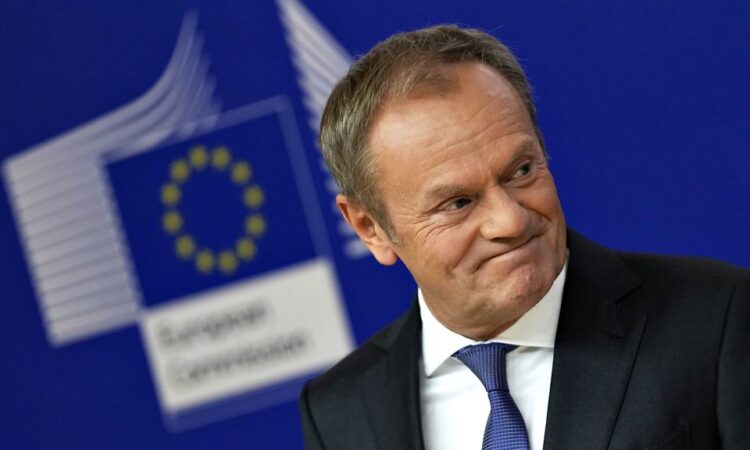
The payment, confirmed on Monday, ends a long wait for the country, whose national plan was approved in June 2022 but remained blocked over persistent concerns about a lack of judicial independence and democratic backsliding.
The decline was credited to Law and Justice (PiS), the hard-right party that governed Poland for eight consecutive years and spearheaded far-reaching reforms that expanded political control over the judiciary and packed courts with loyalists.
The most controversial reform empowered the disciplinary chamber of the Supreme Court to punish magistrates according to the content of their verdicts. The changes prompted a protracted standoff between Brussels and Warsaw, concluding in a landmark ruling from the European Court of Justice (ECJ) that struck down the overhaul.
But the country’s share of the recovery fund, a total of €34.5 billion in low-interest loans and €25.3 billion in non-repayable grants, stood frozen until Donald Tusk took over as Prime Minister and began tabling legislation to undo the PiS-era legacy.
The European Commission officially unblocked the money in late February, days after Tusk’s government presented a nine-bill “action plan” to restore judicial independence and adopted a ministerial order to discontinue unjustified proceedings against judges.
The new cabinet also committed to abide by the ECJ ruling and respect the primacy of EU law, which PiS had contested, exacerbating the row.
The Commission considered Warsaw’s overtures sufficient to meet the two overarching conditions, or “super milestones,” related to the judiciary and allow Poland to gradually receive payments under the bloc’s €750-billion common pot.
The move paved the way for the disbursement of €6.3 billion, made up of €3.6 billion in loans and €2.7 billion in grants, which are earmarked for diversifying energy supplies, combatting air pollution and modernising agricultural production, among other things.
Until now, Poland had only received €5.1 billion in “pre-financing” but this was done without strings attached and was the same for every member state.
“An important day for Poland,” European Commission President Ursula von der Leyen said on Monday. “This is just the beginning.”
“Good cooperation brings results,” said Tusk.
Katarzyna Pełczyńska, Poland’s minister for regional policy, described the sum as the “largest transfer from the EU in the history of our membership.”
Warsaw is expected to submit two more requests this year to receive an additional €23 billion. All payouts will be subject to the completion of investments and projects and could be paused if Tusk’s judicial plans suffer a setback.
The nine bills under the “action plan” will require the signature of President Andrzej Duda, who is politically aligned with the PiS party and has used his veto power in the past to block legislation that, in his view, infringed upon his presidential prerogative.
Since leaving office, PiS officials have accused the Commission of playing politics and withholding the money to effect a change in government.






